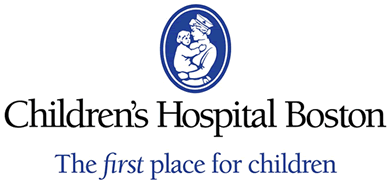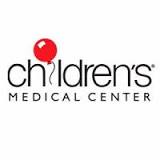A Randomized, Double-Blinded, Placebo-Controlled Trial of Corticosteroid Therapy Following Portoenterostomy
| Status: | Archived |
|---|---|
| Conditions: | Gastrointestinal |
| Therapuetic Areas: | Gastroenterology |
| Healthy: | No |
| Age Range: | Any |
| Updated: | 7/1/2011 |
A Randomized, Double-Blinded, Placebo-Controlled Trial of Corticosteroid Therapy Following Portoenterostomy in Infants With Biliary Atresia
The Biliary Atresia Research Consortium (BARC) is conducting a clinical trial to evaluate
whether long-term treatment with corticosteroids improves the outcome of the Kasai or
gall-bladder Kasai in infants with biliary atresia. BARC is a clinical network of 10
clinical sites supported by the National Institutes of Health whose goal is to improve the
treatment of biliary atresia and other cholestatic diseases in children. In this clinical
trial BARC is testing whether corticosteroid therapy following the Kasai will improve bile
drainage and long term outcome in infants with biliary atresia. Subjects in this trial must
start treatment within 72 hours of the Kasai procedure and be part of a prospective study of
the natural history of biliary atresia also being conducted by BARC
(http://www.clinicaltrials.gov/ct/show/NCT00061828?order=3).
This is a multi-center randomized, double-blinded, placebo-controlled trial to prospectively
determine the efficacy of corticosteroids on the outcome of infants with biliary atresia.
The trial will be conducted by the NIDDK-funded network of ten clinical centers comprising
the Biliary Atresia Clinical Research Consortium (BARC), whose goal is to study the
etiology, pathogenesis, diagnosis, and treatment of infants with biliary atresia. For the
trial, our overall hypothesis is that therapy with corticosteroids following
portoenterostomy (including gall bladder Kasai procedure) will improve bile drainage and
long-term outcome in infants with biliary atresia. This hypothesis will be tested through
the following specific aims and hypotheses:
Aim 1: To determine whether corticosteroid therapy decreases serum bilirubin concentration
after portoenterostomy.
Aim 2: To determine whether corticosteroid treatment after portoenterostomy will improve
outcome as defined by survival without transplantation at 24 months of age.
Aim 3: To determine whether corticosteroid treatment after portoenterostomy will improve
growth of infants with biliary atresia.
Aim 4: To determine whether corticosteroid treatment improves biochemical indicators of each
of the fat-soluble vitamins after supplementation with standard doses.
Aim 5: To determine whether corticosteroid treatment after portoenterostomy will decrease
the incidence of persistent ascites or ascites that requires medical treatment.
The significance of the proposed trial is that it will determine whether corticosteroids are
an effective medical treatment to improve bile drainage and long-term outcome, and whether
its use reduces the need for liver transplantation in infants with biliary atresia.
Subjects will be recruited from patients enrolled in the BARC prospective observational
database study who undergo portoenterostomy or portochelecystostomy (gall bladder Kasai) for
biliary atresia.
The Primary outcome measure is the percentage of patients with serum total bilirubin <1.5
mg/dL and with native liver at 6 months after portoenterostomy.
Secondary outcome measures are:
1. Serum total bilirubin concentration (and also at 3 months after portoenterostomy)
2. Survival with native liver at 24 months of age
3. Growth
1. Weight for age Z-score (in patients without ascites)
2. Height for age Z score
4. Serum biomarkers of sufficiency of fat-soluble vitamins
1. Vitamin A: molar ratio of serum retinol/retinol binding protein
2. Vitamin D: serum level of 25-hydroxy vitamin D
3. Vitamin E: ratio of serum vitamin E/total lipids
4. Vitamin K: International Normalized Ratio (INR)
5. Presence of ascites
All measurements will be made at 12 and 24 months of age (unless noted otherwise):
We found this trial at
12
sites
500 Parnassus Ave
San Francisco, California 94143
San Francisco, California 94143
(415) 476-9000

University of California at San Francisco (UCSF) The leading university exclusively focused on health, UC...
Click here to add this to my saved trials
Johns Hopkins Hosp From the 1889 opening of The Johns Hopkins Hospital, to the opening...
Click here to add this to my saved trials
Children's Hospital - Boston Boston Children's Hospital is a 395-bed comprehensive center for pediatric health...
Click here to add this to my saved trials
Click here to add this to my saved trials
9300 Valley Children's Pl
Madera, California 93720
Madera, California 93720
(559) 353-3000

Children's Hospital Central California The Children's Hospital Central California is a not-for-profit, state-of-the-art children’s hospital...
Click here to add this to my saved trials
Mount Sinai Med Ctr Founded in 1852, The Mount Sinai Hospital is a 1,171-bed, tertiary-care...
Click here to add this to my saved trials
Washington University Washington University creates an environment to encourage and support an ethos of wide-ranging...
Click here to add this to my saved trials
Click here to add this to my saved trials
Click here to add this to my saved trials
Children's Medical Center of Dallas Children's Medical Center is private, not-for-profit, and is the fifth-largest...
Click here to add this to my saved trials
Click here to add this to my saved trials
Click here to add this to my saved trials




